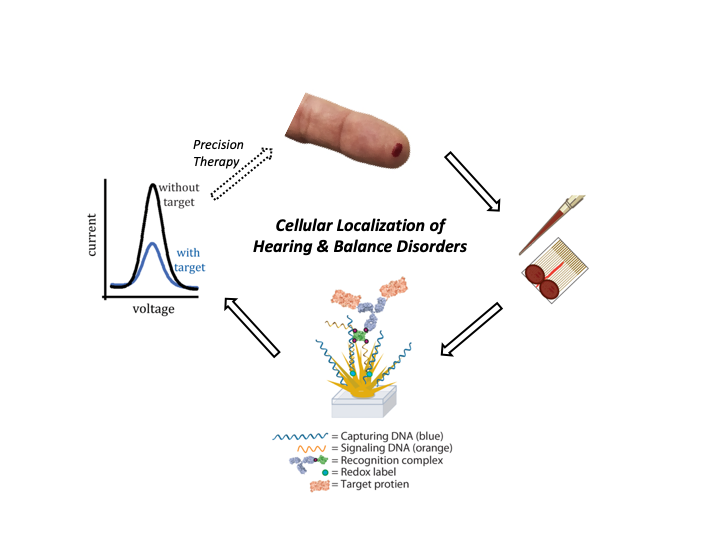Sunnybrook researchers have developed a new way to detect hearing loss in blood
With what is believed to be the first test of its kind, Sunnybrook scientists have demonstrated a way to detect hearing disorders using a simple blood test.
The research has been published in Biosensors and Bioelectronics.
“Over 600 million people have hearing loss worldwide including 3.5 million Canadians. In 20 years, as the population ages, that number is likely to increase to 1 billion, says Dr. Alain Dabdoub, co-author of the study, senior scientist and research director of the Sonja N. Koerner Hearing Regeneration Laboratory at Sunnybrook Research Institute.
“Current approaches for detecting hearing disorders are mostly based on physical examinations and cannot provide information about the exact location of the cellular damage within the inner ear. There is a need for a new more precise method to identify sites of damage.”
In their pre-clinical research, Dr. Dabdoub and Dr. Sahar Mahshid, research associate, have designed a biosensor test to detect otolin-1 and prestin, two unique proteins which can be found circulating in blood and are linked to balance and hearing disorders respectively. The test, which is patent pending, is comparable to a glucose monitor and requires only a drop of blood.
“Within 10 minutes, we’re able to detect if these proteins are in the blood sample, says Dr. Mahshid. “The test, which relies on antibodies to detect the proteins, can be easily adapted to identify other blood-circulating proteins down the line.”
Dr. Mahshid cautions that the research is still in the pre-clinical stage, adding that more work is needed to improve the test before it can be used at point-of-care. “At this time, the test is able to detect the proteins in low concentrations, but still higher than what you would typically see in a patient’s blood. Our goal is to enhance our detection sensitivity, while also exploring more blood-circulating proteins reporting on hearing and balance disorders.”
The researchers note the test holds great promise for point-of-care diagnostics and will eventually allow for more precise treatments. “Being able to localize cellular damage will enable us to better personalize treatment," says Dr. Dabdoub. “This will eventually lead to improved quality of life for patients living with hearing and balance disorders.”
This research was supported by a grant from the Krembil Foundation and by the Koerner Foundation.
Media contact
Samantha Sexton
Communications advisor
416-480-4040
samantha.sexton@sunnybrook.ca




